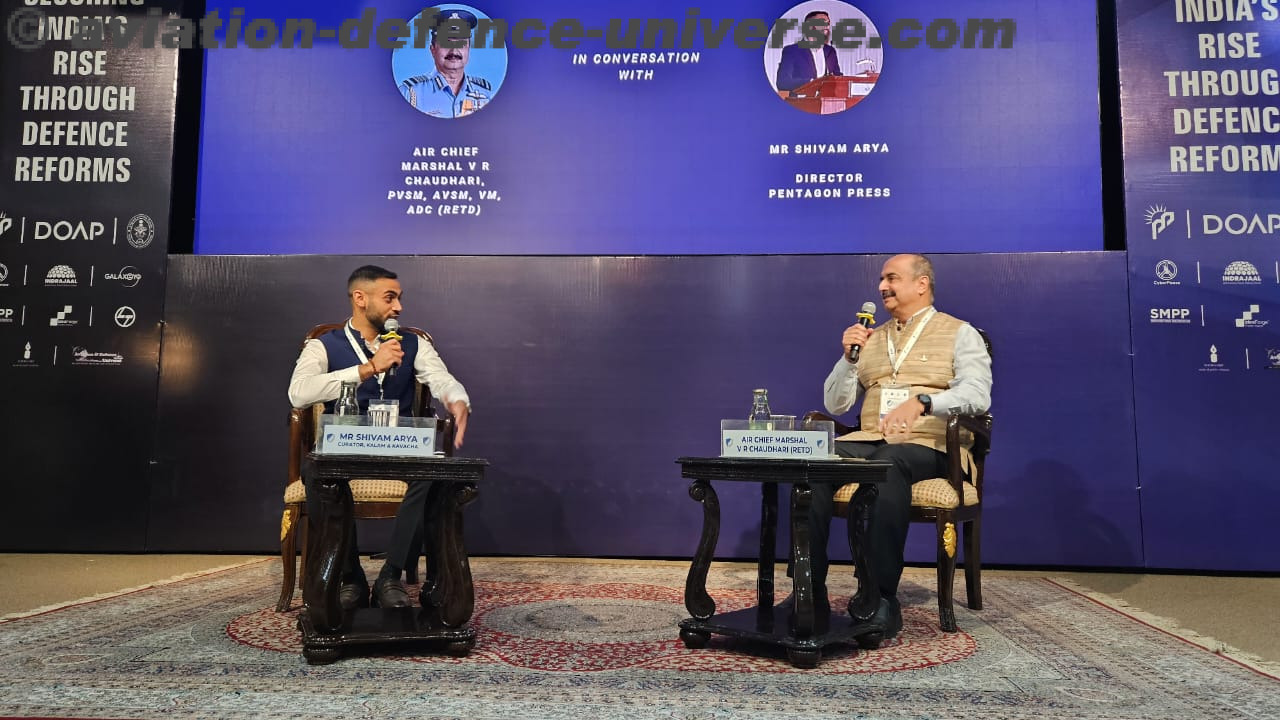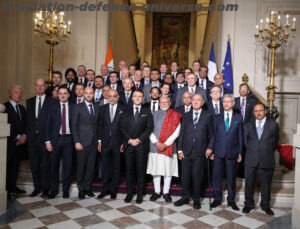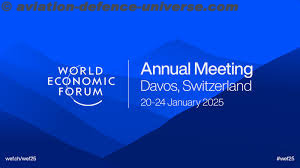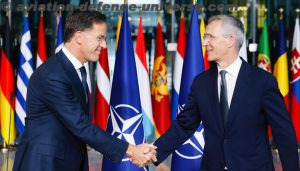- New Zealand (Aotearoa) Deputy Prime Minister and Minister of Foreign Affairs Winston Peters gave public remarks on the US-NZ relationship at the East-West Center on April 12.
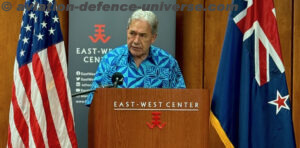 Highlighting Honolulu and Auckland’s unique geography as “the northern and southern points of the so-called Polynesian triangle,” Peters touted the history of the longstanding partnership in the Pacific between the United States and New Zealand, or Aotearoa.
Highlighting Honolulu and Auckland’s unique geography as “the northern and southern points of the so-called Polynesian triangle,” Peters touted the history of the longstanding partnership in the Pacific between the United States and New Zealand, or Aotearoa.
He discussed the delegation’s visit to the USS Missouri, where the Pacific part of World War II formally came to an end, as “a reminder of the history of shared sacrifice that forever binds New Zealanders, Americans, and people from throughout the Pacific.”
“Our peoples have fought, and died, together in defense of a free, open, and democratic region. A region in which our people are free to elect their own political leaders and to worship the god of their choice. And a region, the Pacific, that lives up to the promise of that name,” Peters said. Referencing World War II, he noted that “dark, painful” chapter of history provided “the backdrop to the efforts we have collectively made, in the eight decades since, to painstakingly build an international order based on dialogue, compromise, diplomacy, and trust.”
‘Cool-headed’ diplomatic approach
Peters said New Zealand takes a cautious, pragmatic approach to diplomacy as a practical reality given the country’s relative size, particularly as events in international relations can change day by day. Working closely with ally Australia, he said, New Zealand is guided by a ‘cool-headed’ assessment of its own interests, relative strengths, and vulnerabilities.
“My view of the strategic partnership between New Zealand and the United States is this,” he said: “We each have the right, indeed the imperative, to pursue our own foreign policies, driven by our own sense of national interest.” The deputy prime minister acknowledged that there have been times in which the United States and New Zealand’s interests were not aligned in the past, despite the strong partnership between the two countries. But he underscored the need for civility in such moments, emphasizing that “we should never forget what binds and unites us, bonds stronger and more long-lasting than the controversies and headlines of the moment. We should give each other the benefit of the doubt and a fair hearing, seek to understand each other’s perspectives, and find common cause and common purpose.”
Shared objectives
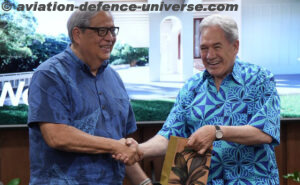 “New Zealand looks forward to working with the new US Administration to support a peaceful, prosperous, and resilient Pacific and wider Indo-Pacific region,” said Peters. “We look forward to continue partnering across the interdependent areas of security, economics, and development.”
“New Zealand looks forward to working with the new US Administration to support a peaceful, prosperous, and resilient Pacific and wider Indo-Pacific region,” said Peters. “We look forward to continue partnering across the interdependent areas of security, economics, and development.”
Recounting a recent official visit to Washington, DC to meet representatives of the new US administration, including the secretary of state and the national security adviser, Peters recognized that the United States expects New Zealand to “carry our share of the burden in keeping our part of the world safe and prosperous.” Alluding to New Zealand’s cooperation with the US during World War II, Peters confirmed that the current New Zealand government is again seeking to meet that challenge through decisions on defense capability and development spending, even under “difficult fiscal conditions.” “We do this because it’s the right thing to do,” he asserted. “Because it’s in New Zealand’s interests.”
The message he took to Washington in return, he said, was that “New Zealand wants—indeed needs—for the United States to remain an active, engaged, and constructive partner in the Indo-Pacific.”
Peters acknowledged existing uncertainty and anxiety over aspects of current US policy toward the Pacific, partly as a “natural and regular consequence of a change of administration” and partly related to recent changes in US positions on issues including development spending and tariffs. “But our message to both our American friends and to our Pacific family is a timeless one. As we work through the issues facing us today… remember our collective purpose of pursuing and protecting a free, democratic, open, prosperous, and resilient Pacific… We will seek to remember those enduring values and interests that unite New Zealand, the United States, and the Pacific. And we will continue to promote careful, pragmatic, quiet dialogue aimed at de-escalation and practical problem solving.”












